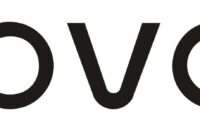- Phase 2b RE-THINC ESRD study of fesomersen met its primary endpoint in patients with end-stage renal disease on hemodialysis
- Fesomersen demonstrated substantial and statistically significant reductions in Factor XI activity levels
- Fesomersen, a novel Factor XI antisense inhibitor designed to prevent thrombosis, was safe and well-tolerated in the study with up to 48-week treatment
CARLSBAD, Calif., July 28, 2022 /PRNewswire/ — Ionis Pharmaceuticals, Inc. (Nasdaq: IONS), today announced positive topline results of the Phase 2b RE-THINC ESRD study of fesomersen, formerly IONIS-FXI-LRx, in patients with end-stage renal disease (ESRD) on hemodialysis. In the study, fesomersen achieved its primary outcome measure of no increase in incidence of major bleeding and clinically relevant non-major bleeding as compared to placebo. Data from the study show that fesomersen, administered monthly at 40 mg, 80 mg and 120 mg for up to 48 weeks, was safe and well-tolerated. Fesomersen also demonstrated substantial and statistically significant reductions in Factor XI activity levels.
Data from the study are consistent with the clinical profile seen across Ionis’ other LICA programs, further validating how advancements in the company’s LIgand-Conjugated Antisense technology position Ionis to deliver potentially transformative treatments for a range of unmet medical needs. The RE-THINC ESRD study was conducted by Bayer, which licensed fesomersen from Ionis. Data from the study will be presented at an upcoming medical meeting.
“For decades, anticoagulants have been a therapeutic mainstay in the treatment and prevention of thrombosis. However, they can be associated with increased bleeding risk, which can lead to major, sometimes fatal, bleeding events,” said Sanjay Bhanot, M.D., Ph.D., senior vice president, chief medical officer and metabolic and liver franchise leader at Ionis. “The results of the RE-THINC ESRD study demonstrate fesomersen’s potential as a novel anti-thrombotic treatment for cardiovascular and renal disease patients.”
An estimated 17.9 million people die from cardiovascular disease each year, representing 32% of all deaths worldwide.1 Of these deaths, 85% are due to heart attacks and strokes, which are often caused by blood clots (thrombosis) that block blood vessels in the heart or brain. Fesomersen is an investigational antisense medicine designed by Ionis to reduce the production of Factor XI, a protein produced in the liver that is an important component of the coagulation pathway. Factor XI is an attractive target for an anti-thrombotic medicine because of its potential to separate anti-thrombotic activity from bleeding risk. The RE-THINC ESRD study focused on ESRD patients because they have a significantly high risk of thromboembolic events and also a very high bleeding risk.
In prior clinical studies evaluating the safety and efficacy of the non-LICA version of fesomersen, IONIS-FXIRx, dose-dependent inhibition of Factor XI activity was demonstrated, which was associated with significant reductions in clotting events and no increase in major bleeding events. IONIS-FXIRx was the first anti-thrombotic in development to demonstrate potential to separate anti-thrombotic activity from bleeding risk.
RE-THINC ESRD (NCT04534114) is a randomized, double-blind, placebo-controlled study evaluating the safety, pharmacokinetics and pharmacodynamics of multiple doses of fesomersen in 307 patients with end-stage renal disease on hemodialysis. Study participants were randomized to 1 of 3 cohorts receiving 40 mg, 80 mg or 120 mg of subcutaneously administered fesomersen or placebo every four weeks for up to 48 weeks. The primary endpoint of the study was incidence of major bleeding and clinically relevant non-major bleeding.
Thrombosis is the formation of blood clots inside blood vessels. Blood clots can obstruct blood flow to prevent sufficient oxygen flow to tissues and organs. In addition, clot fragments can break off from the blood clot and travel to occlude other parts of the circulation. Thrombosis is responsible for many heart attacks and strokes and is the leading cause of morbidity and mortality worldwide. Current anti-thrombotic treatments include anticoagulants such as warfarin, Factor Xa inhibitors and thrombin inhibitors. Although these therapies are effective at lowering the risk of thrombosis, they can place patients at significant risk of bleeding because they target factors required for normal coagulation.
Fesomersen, (formerly IONIS-FXI-LRx) is an investigational antisense medicine designed by Ionis to reduce the production of Factor XI, a clotting factor produced in the liver that is an important component of the coagulation pathway. High levels of Factor XI increase the risk of blood clot formation inside blood vessels (thrombosis), which can cause heart attacks and strokes. Alternatively, individuals deficient in Factor XI have a lower incidence of thrombosis-related events and little to no increase in bleeding risk. This makes Factor XI an attractive target for an anti-thrombotic medicine because of the potential to separate anti-thrombotic activity from bleeding risk. Although currently available anticoagulants reduce the risk of thrombosis, these anticoagulants are associated with increased bleeding risk at therapeutic doses, which can lead to major, sometimes fatal bleeding events.
For more than 30 years, Ionis has been the leader in RNA-targeted therapy, pioneering new markets and changing standards of care with its novel antisense technology. Ionis currently has three marketed medicines and a premier late-stage pipeline highlighted by industry-leading cardiovascular and neurological franchises. Our scientific innovation began and continues with the knowledge that sick people depend on us, which fuels our vision of becoming a leading, fully integrated biotechnology company.
To learn more about Ionis, visit www.ionispharma.com and follow us on Twitter @ionispharma.
This press release includes forward-looking statements regarding Ionis’ business and the therapeutic and commercial potential of Ionis’ technologies, fesomersen and other products in development. Any statement describing Ionis’ goals, expectations, financial or other projections, intentions or beliefs is a forward-looking statement and should be considered an at-risk statement. Such statements are subject to certain risks and uncertainties, including those related to the impact COVID-19 could have on our business, and including but not limited to, those related to our commercial products and the medicines in our pipeline, and particularly those inherent in the process of discovering, developing and commercializing medicines that are safe and effective for use as human therapeutics, and in the endeavor of building a business around such medicines. Ionis’ forward-looking statements also involve assumptions that, if they never materialize or prove correct, could cause its results to differ materially from those expressed or implied by such forward-looking statements.
Although Ionis’ forward-looking statements reflect the good faith judgment of its management, these statements are based only on facts and factors currently known by Ionis. As a result, you are cautioned not to rely on these forward-looking statements. These and other risks concerning Ionis’ programs are described in additional detail in Ionis’ annual report on Form 10-K for the year ended Dec. 31, 2021, and the most recent Form 10-Q quarterly filing, which are on file with the Securities and Exchange Commission. Copies of these and other documents are available from the Company.
In this press release, unless the context requires otherwise, “Ionis,” “Company,” “we,” “our,” and “us” refers to Ionis Pharmaceuticals and its subsidiaries.
Ionis Pharmaceuticals® is a trademark of Ionis Pharmaceuticals, Inc.
1 World Health Organization; https://www.who.int/news-room/fact-sheets/detail/cardiovascular-diseases-(cvds)
SOURCE Ionis Pharmaceuticals, Inc.






